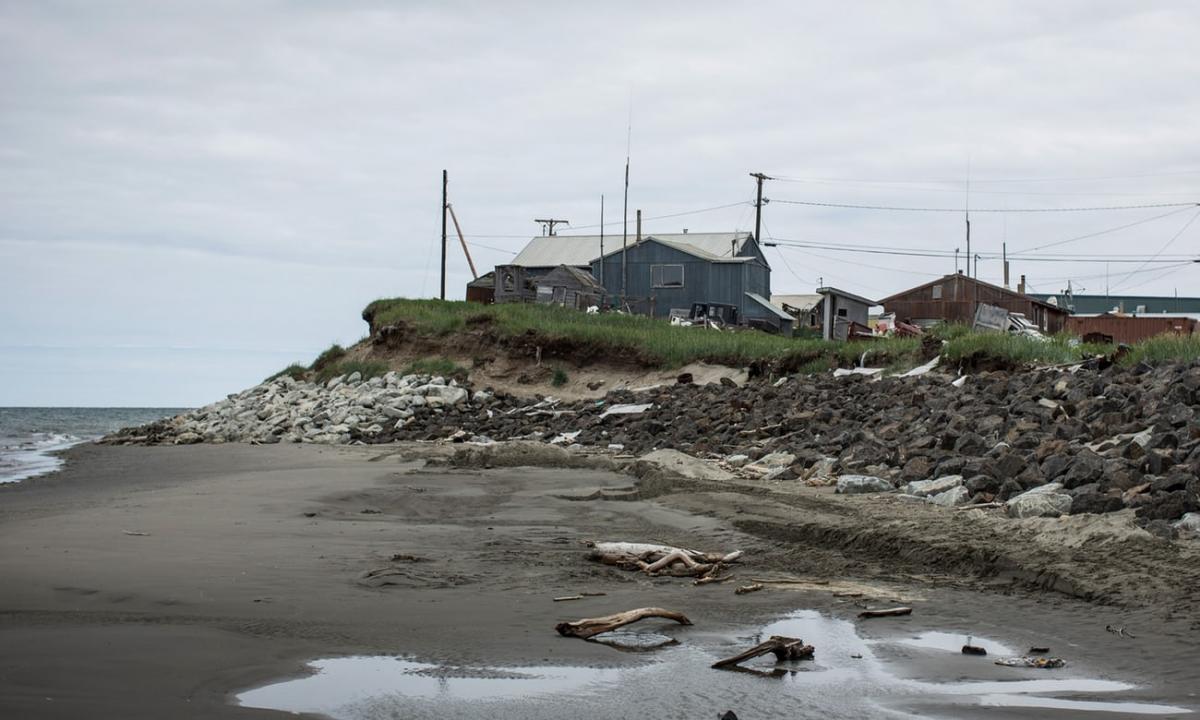
Residents of Shishmaref voted to relocate to the mainland, but in common with other Alaskan towns, there is no clear source of funding to do this. Photograph: Andrew Burton/Getty Images
Communities in danger of falling into the sea say assistance from Washington has dried up: ‘It feels like a complete abdication of responsibility on climate change’
theguardian.com - by Oliver Milman - August 10, 2017
The US government’s withdrawal from dealing with, or even acknowledging, climate change may have provoked widespread opprobrium, but for Alaskan communities at risk of toppling into the sea, the risks are rather more personal.
The Trump administration has moved to dismantle climate adaptation programs including the Denali Commission, an Anchorage-based agency that is crafting a plan to safeguard or relocate dozens of towns at risk from rising sea levels, storms and the winnowing away of sea ice.
Federal assistance for these towns has been ponderous but could now grind to a halt, with even those working on the issue seemingly targeted by the administration.
(READ COMPLETE ARTICLE)
Recent Comments